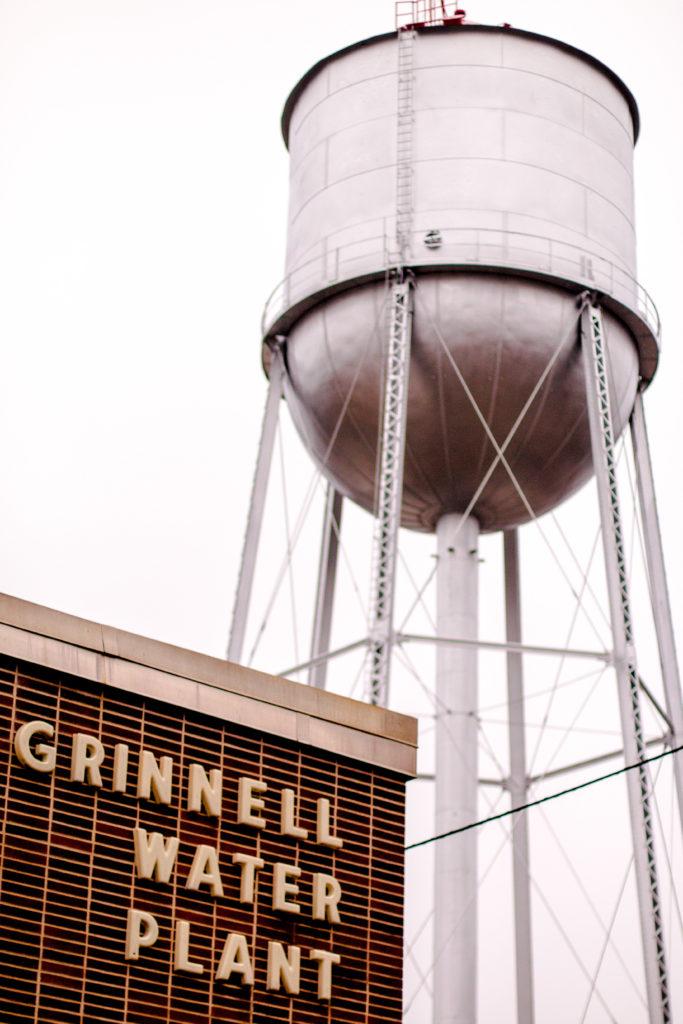This Sunday, Feb. 25 at 2 p.m., Bucksbaum 152 will host a panel discussion entitled “Where Does Our Water Come From & Where Does It Go? A Look at Water in Grinnell and Poweshiek County.” Coming shortly after the passage of a $282 million water quality bill in the Iowa legislature in late January, which aims to reduce nitrogen and phosphorous in Iowa water, this discussion is extremely timely and will offer a chance for Grinnellians to ask experts on local water about how state wide water-related patterns play out on a local level.
There are many issues with water in Grinnell that may provide discussion points on Sunday. In Iowa, runoff from farming cause chemicals like nitrates to seep into water supplies. Additionally, in 2016 the Iowa Department of Natural Resources found that upwards of 6,000 Iowans may have been exposed to unsafe levels of lead in their drinking water. Although Grinnell was not one of the affected communities, many Grinnellians probably want to know for sure just how safe the town’s drinking water is. The water quality report on the City of Grinnell’s website has not been updated since 2016, when Grinnell’s drinking water did not violate federal contamination limits.
Professor Peter Jacobson, biology, who will moderate the discussion, said, “At the national level people hear about Flint, Michigan and other areas where water quality is a significant issue, so folks may want to know how safe Grinnell’s tap water is.”
Interestingly, some water taste judges say Grinnell’s water is some of the best-tasting in the country: it was a finalist in the National Rural Water Association’s Great American Water Taste Test, so that, according to the Center for Prairie Studies email about the event, “[it] is a point of local pride that the Poweshiek Water Association is providing its customers with some of the best tasting water in the country.”
Additionally, Grinnell’s current wastewater treatment plant is outdated and its emissions are not in compliance with federal guidelines, so the City is in the process of updating their current facilities, which may be another issue attendees will want the panel to address.
On the panel, which was assembled by Professor Jonathan Andelson, anthropology and prairie studies, will be Jan Anderson, water resources director; Chad Coburn, executive director of Poweshiek Water Association; Mindy Siek, watershed coordinator with the Poweshiek Soil and Water Conservation District (SWCD); and Matt Tapken, the Poweshiek Water Association’s chief operations officer. Each member of the panel will give a ten-minute presentation, and afterwards there will be a chance for audience members to ask questions.
Anderson has worked closely with Grinnell’s water treatment facilities since 1979, after he recieved a Master’s in geology from the University of Iowa. He has overseen upgrades to the wastewater treatment plant and the water treatment plant, and helped the community construct a deep water well in 2000. Coburn has worked in rural water for 17 years, collaborating with state and national government and several Iowa communities. Mindy Siek’s focus since 2008 has been improving the quality of water and soil in Iowa and Kansas. Finally, Tapken is an expert in water treatment and groundwater, as well as making water taste good.
This dream team of local water experts are a perfect set of people to field questions about what comes out of Grinnell’s taps. Do Grinnellians need to Brita filter tap water and buy fancy bottles of water at Walmart? Or should they savor the local water’s supposedly top-tier flavor? This Sunday in Bucksbaum is the perfect time to find out.



























































